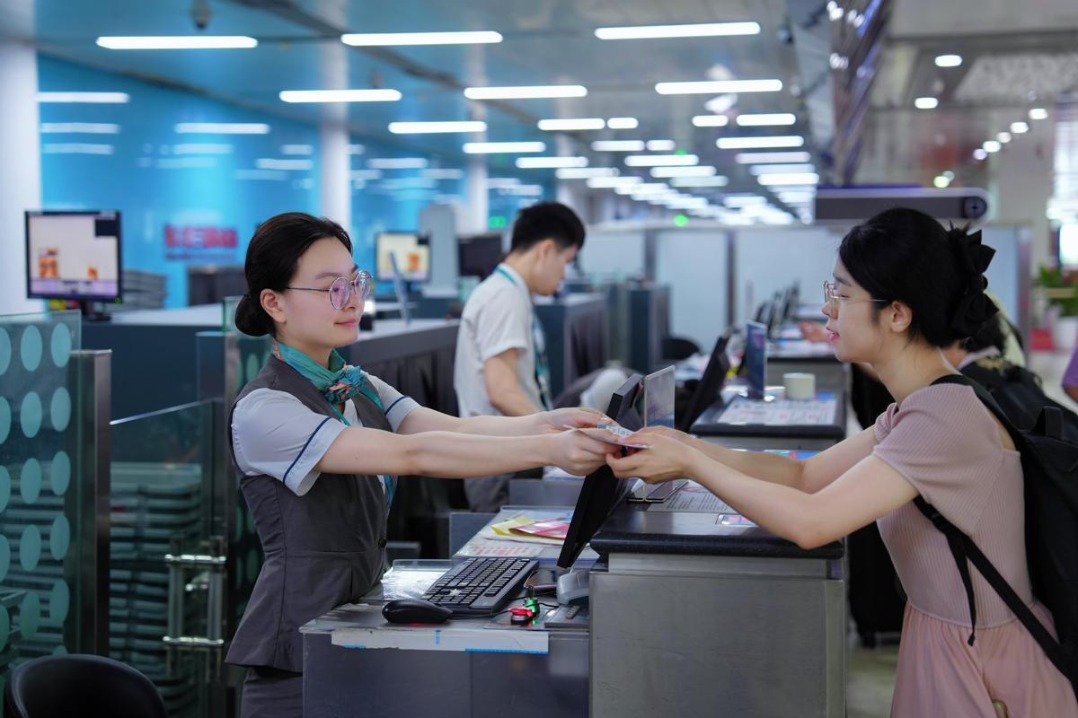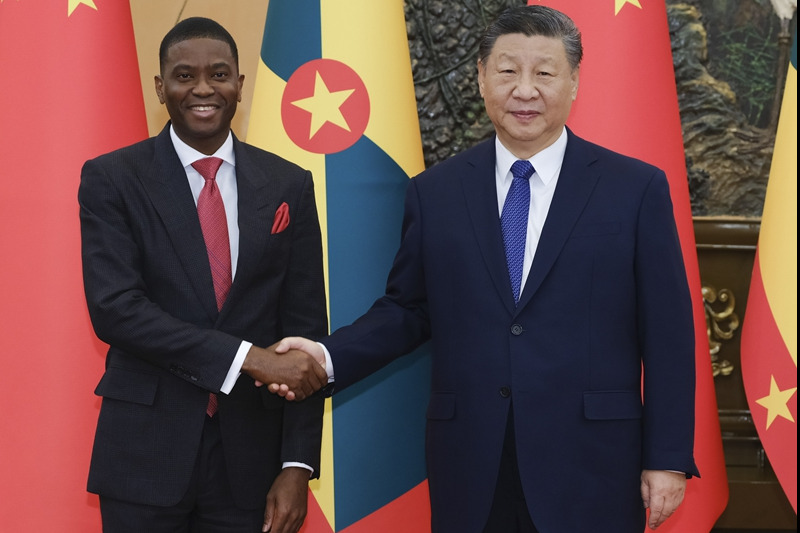Beijing sets impressive records again
2024 work report outlines high-quality development seen in various sectors

Beijing has made significant strides in high-quality economic development, particularly in advanced manufacturing and emerging industries such as artificial intelligence and robotics, the city's mayor said on Tuesday.
The capital's GDP grew 5.2 percent year-on-year in 2024 despite external pressures and internal challenges, Mayor Yin Yong said during the municipal government's annual work report at Beijing's "two sessions". Beijing continues to lead in key indicators, including per capita GDP and energy efficiency, he said.
One of the standout achievements has been the growth of the pharmaceutical and health industry, which surpassed 1 trillion yuan ($136.4 billion) in industrial output for the first time. The sector has made breakthroughs in several cutting-edge fields, Yin said.
Last year, eight foreign pharmaceutical and medical device companies established research and innovation institutions in Beijing. Among them were Pfizer Inc, which set up a research center, and Danaher Corp, which launched a northern innovation center. HUYA Bioscience International also established its China headquarters in the city.
The pharmaceutical and health industry is now considered one of Beijing's core engines for driving innovative growth, said Gong Wei, an official from the Beijing Municipal Science and Technology Commission.
Beijing has also ramped up efforts in new energy vehicle production. Key projects by companies such as BAIC, Xiaomi and NIO commenced production last year, contributing to a production output of approximately 300,000 NEVs — nearly triple the previous year. The total number of NEVs operating in Beijing has exceeded 1 million.
The city has been a pioneer in autonomous driving technology. A high-level autonomous driving demonstration zone now covers 600 square kilometers, and new regulations for autonomous vehicles are set to take effect in April this year.
Since the launch of the country's first autonomous driving demonstration zone in 2020, the area has attracted over 30 domestic and foreign companies, with vehicles accumulating more than 32 million kilometers of test driving.
The demonstration zone has drawn more than 120 companies across the autonomous driving supply chain, including three unicorn firms, said Wang Lei, an official with the Beijing Economic-Technological Development Zone.
Beijing's core artificial intelligence industry has surpassed 300 billion yuan in scale, while major integrated circuit projects are progressing steadily, the report said.
Looking ahead, Beijing aims to foster 20 future industries, including humanoid robotics, commercial aerospace, biomanufacturing and new materials, Yin said.
In July, construction began on the Beijing Rocket Street project, a 63,300-square-meter site in the Beijing Economic-Technological Development Zone. It will include a technology platform, high-end manufacturing center, research and development facilities, and an interactive exhibition hall for aerospace innovation.
Beijing will host the inaugural World Humanoid Robot Games this year, though details have yet to be announced.
dujuan@chinadaily.com.cn




































